The rental market in Toronto is both dynamic and challenging, posing unique issues for tenants who seek fair treatment and adherence to the law.
Navigating rental agreements, rent disputes, and landlord-tenant conflicts can be overwhelming without specialized legal assistance.
Tenant lawyers provide invaluable support by protecting tenants' rights and ensuring landlords comply with Ontario's legal standards!
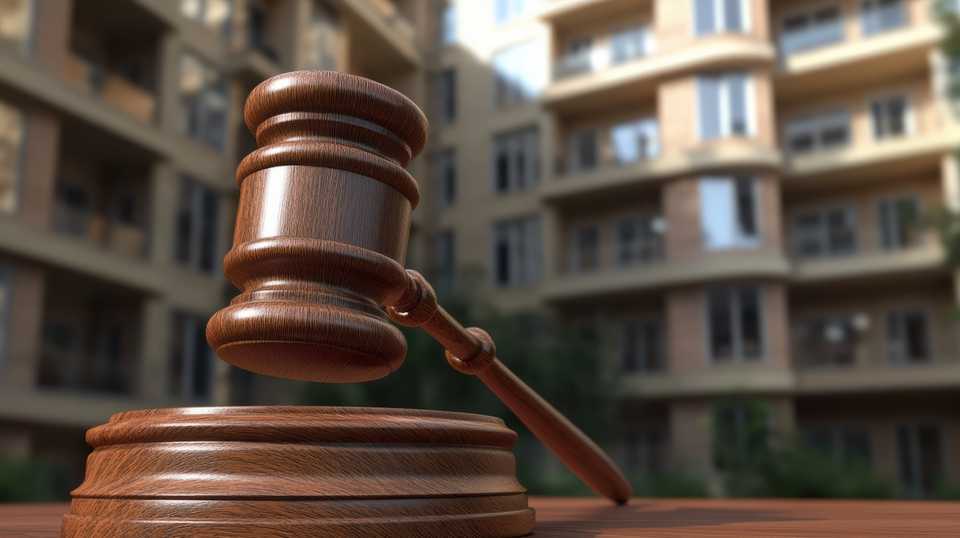
| In this article, JuriGo explores what tenant lawyers do, the specific services they provide in Toronto, and how to find the best tenant lawyer for your needs! |
|---|
What Is a Tenant Lawyer?
A tenant lawyer focuses on the rights of renters and the application of housing laws. In Ontario, tenant lawyers are experts in the Residential Tenancies Act(RTA), which lays out the rights and responsibilities of both landlords and tenants. Their main goal is to advocate for tenants and provide legal guidance or representation in disputes that involve rental properties.
Tenant lawyers can assist with issues such as unlawful evictions, harassment, privacy violations, unfair rent increases, and discrimination. Their knowledge of housing regulations ensures that tenants are not taken advantage of and can navigate legal processes with confidence.
What Services Are Provided by Tenant Lawyers in Toronto?
Tenant lawyers in Toronto offer an essential range of legal services to safeguard the rights and interests of renters. These specialized lawyers play a vital role in ensuring that tenants can navigate the complexities of rental law with confidence.
Here’s an overview of the primary services provided by tenant lawyers in Toronto:
Protection from Landlord Harassment
Tenant lawyers play a crucial role in supporting tenants who face harassment by their landlords. Harassment can manifest in various ways, such as frequent, unwarranted visits, intimidation tactics, or coercive attempts to force tenants into moving out without any lawful basis.
The first step in addressing harassment is ensuring that tenants fully understand their rights under the RTA. Tenants are entitled to live in their rental units free from unreasonable interference by the landlord.
Any actions that disturb this right could constitute a violation of the law. Tenant lawyers are there to help tenants identify such violations and ensure they are aware of their legal protections. Harassment by a landlord undermines a tenant's right to peacefully enjoy their home, a right safeguarded under the RTA.

To effectively protect these rights, tenant lawyers guide tenants through a series of key steps designed to address and stop the harassment:
Documenting Instances of Harassment:
The first step in addressing harassment is to document each incident. Tenant lawyers assist tenants in keeping detailed records, including dates, times, and descriptions of the harassment. Documentation may involve written notes, photographs, or, in some cases, recordings (where permitted by law). This evidence is crucial for building a strong case against the landlord’s actions.
Sending a Formal Warning Letter:
A tenant lawyer may start by drafting a formal warning letter to the landlord, clearly outlining the specific instances of harassment and demanding that the behaviour cease immediately.
This letter serves as an official notice to the landlord and helps establish a legal record of the harassment. The lawyer may also advise on the appropriate language and tone to use in such letters to ensure they are taken seriously.
Filing a Complaint with the Landlord and Tenant Board:
If informal communications fail, tenant lawyers can file a formal complaint with the Landlord and Tenant Board (LTB).
The LTB is the governing body that resolves disputes between landlords and tenants. A tenant lawyer will guide the tenant through the process of filing the complaint and ensure that all necessary evidence is included. The LTB can issue orders to stop the harassment or take further legal action against the landlord.
Seeking an Injunction or Court Order:
In severe cases where harassment continues despite attempts to resolve the issue, a tenant lawyer may help the tenant seek an injunction or a court order. This legal remedy can provide immediate protection by legally prohibiting the landlord from engaging in further harassment, such as entering the rental unit without permission or continuing to pressure the tenant.
Representation at the Landlord and Tenant Board Hearing:
If the matter progresses to a hearing, tenant lawyers represent the tenant at the LTB. They present the evidence of harassment, question witnesses, and advocate for the tenant’s rights. The lawyer ensures that the tenant's case is clearly presented and works to obtain a favourable outcome at the hearing.
Preventive Measures:
Tenant lawyers also offer preventive guidance to help tenants avoid future harassment. This includes advising on how to handle interactions with the landlord, continuing to document any incidents, and knowing when to take further action. Proactive steps can minimize the risk of harassment escalating and help tenants better protect themselves.
By following these steps, tenant lawyers help tenants address harassment effectively, ensuring that landlords are held accountable for behaviour that violates the Residential Tenancies Act.
Defence Against Bad Faith Evictions
Unlawful or “no-fault” evictions have become an increasing problem in Toronto and other regions, with landlords often citing personal use or claiming the need for major renovations, known as “renovictions.” These tactics are frequently used with the real intent to remove current tenants and then increase rent or lease the property to new tenants at a higher price.
Tenant lawyers play a vital role in defending against these types of evictions by:
- Scrutinizing the Validity of Eviction Notices: Tenant lawyers thoroughly review eviction notices to assess their legality. This includes verifying whether the stated reason, such as personal use or major renovations, aligns with the requirements set by the Residential Tenancies Act (RTA) and whether the landlord has a legitimate basis for the eviction.
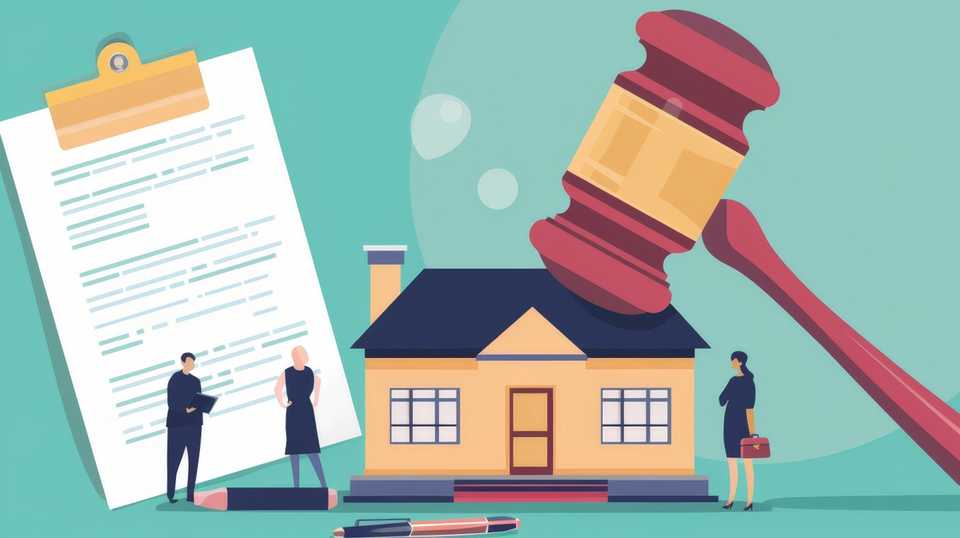
- Identifying Signs of Bad Faith: Lawyers are trained to recognize signs of bad faith, such as patterns of previous evictions, sudden changes in property management behaviour, or inconsistencies in the landlord’s claims. These indicators help build a case to contest an eviction that may be motivated by financial gain rather than legitimate reasons.
- Assisting Tenants in Contesting Evictions: If an eviction appears to be in bad faith, tenant lawyers assist clients in filing objections with the Landlord and Tenant Board (LTB). They gather evidence, such as proof of the landlord’s intent or alternative uses of the property, and prepare the tenant’s argument against the eviction.
- Providing Representation at LTB Hearings: Legal representation during LTB hearings is crucial. Tenant lawyers advocate on behalf of tenants, present evidence, question the landlord’s claims, and highlight any unlawful practices.
This ensures that tenants have a strong defence against evictions that are disguised as legitimate but are intended to circumvent rent control measures or remove tenants unfairly.
- Protecting Tenant Rights Throughout the Process: Beyond disputing evictions, tenant lawyers offer ongoing support by ensuring that tenants understand their rights, such as compensation or alternate housing options if a valid eviction occurs. They advise tenants on potential outcomes and prepare them for each stage of the dispute resolution process.
Addressing Landlord Claims for Damages
When tenants vacate a rental property, landlords may sometimes make claims for damages that go beyond what is considered ordinary wear and tear. In some cases, these claims can be exaggerated or even unfounded.
Tenant lawyers play a critical role in defending tenants against damage claims made by landlords. Below are the key areas in which they provide support:
| Key Point | Description |
|---|---|
| Evaluating the legitimacy of damage claims | Tenant lawyers carefully assess the claims made by landlords to determine if they are legitimate. This involves reviewing the lease agreement, move-in and move-out inspection reports, and any photographic evidence provided by either party. The goal is to identify whether the claimed damages are valid or fall under normal wear and tear, which tenants are not responsible for. |
| Defining ordinary wear and tear vs. damage | Tenant lawyers help tenants understand the difference between ordinary wear and tear (example; minor scuffs or worn carpets) and damage that requires compensation (example; large holes, broken fixtures). This allows lawyers to argue effectively against unjustified claims. |
| Challenging exaggerated or unfounded claims | If a landlord makes exaggerated or baseless claims for damages, tenant lawyers will challenge these claims by presenting evidence to show the true condition of the rental unit. This may include photos, written documentation from the tenant’s move-in and move-out inspections, and witness testimonies if needed. |
| Providing Legal Representation at the Court | In cases where a landlord’s claim escalates to the Landlord and Tenant Board (LTB) or Small Claims Court, tenant lawyers represent the tenant’s interests. They prepare a defence strategy, submit necessary documentation, and present arguments to prove that the tenant should not be held liable for unwarranted damage charges. This representation is vital for ensuring that tenants are treated fairly and do not face undue financial penalties. |
| Advising on preventive measures | To avoid disputes, tenant lawyers often advise renters on preventive steps, such as taking detailed photos during move-in and move-out inspections and keeping records of any communications with the landlord. This helps tenants build a strong foundation of evidence that can be used if a damage claim arises. |

In summary, tenant lawyers play an indispensable role in protecting tenants from unjust damage claims by landlords. From assessing the legitimacy of claims and defining wear and tear to providing representation in court and advising on preventive measures, their expertise ensures that tenants’ rights are upheld!
Ensuring Necessary Repairs and Maintenance
When tenants face serious repair or maintenance issues, such as plumbing failures, heating problems, or structural damage, it can greatly affect their quality of life. Tenants have the right to live in a safe and habitable environment, as required by the RTA in Ontario.
Tenant lawyers help renters whose landlords fail to maintain the property properly. They provide guidance on tenants' rights, assist in drafting formal repair requests, and help escalate the issue to the LTB if the landlord does not address the problem. The LTB can enforce repairs and ensure that landlords meet their obligations under the RTA, ensuring tenants have a safe living space.
Discrimination Cases in Housing
Discrimination in housing is prohibited under the Ontario Human Rights Code (OHRC), which ensures that tenants are not unfairly treated based on personal characteristics such as:
- Age
- Ancestry, colour, race
- Citizenship
- Ethnic origin
- Place of origin
- Creed
- Disability
- Family status
- Marital status (including single status)
- Gender identity, gender expression
- Receipt of public assistance (in housing only)
- Record of offences (in employment only)
- Sex (including pregnancy and breastfeeding)
- Sexual orientation
Discriminatory actions in housing can include practices such as landlords refusing to rent to someone based on these characteristics, offering different rental terms based on a tenant's background, or harassing tenants because of their identity.
Tenant lawyers specialize in handling discrimination cases related to housing. They can guide tenants on how to recognize discriminatory practices and advise them on their legal options. Here are some key points on how tenant lawyers assist with discrimination cases:
- Identifying Discriminatory Practices: Tenant lawyers help tenants identify whether they are facing discrimination. This may involve instances where a landlord refuses to rent or offers unfair treatment due to the tenant’s race, gender, disability, or other protected characteristics.
- Filing Complaints: If a tenant believes they are a victim of discrimination, the lawyer can assist in filing a formal complaint with the Human Rights Tribunal of Ontario (HRTO). The HRTO is responsible for hearing cases involving discrimination and ensuring that individuals' rights are upheld.
- Legal Representation: Tenant lawyers represent clients at the HRTO or in other legal forums, providing guidance and support throughout the process. They prepare the case, present evidence, and argue on behalf of the tenant to ensure that their rights are protected.
- Seeking Remedies: Tenant lawyers work to secure appropriate remedies for their clients. This can include financial compensation for damages, changes in rental practices, or orders requiring the landlord to stop discriminatory behaviour.
- Protecting Tenants' Rights: Lawyers ensure that tenants are not subjected to any form of unfair treatment based on characteristics protected by the OHRC, offering them legal protection and support during what can be a difficult and stressful process.
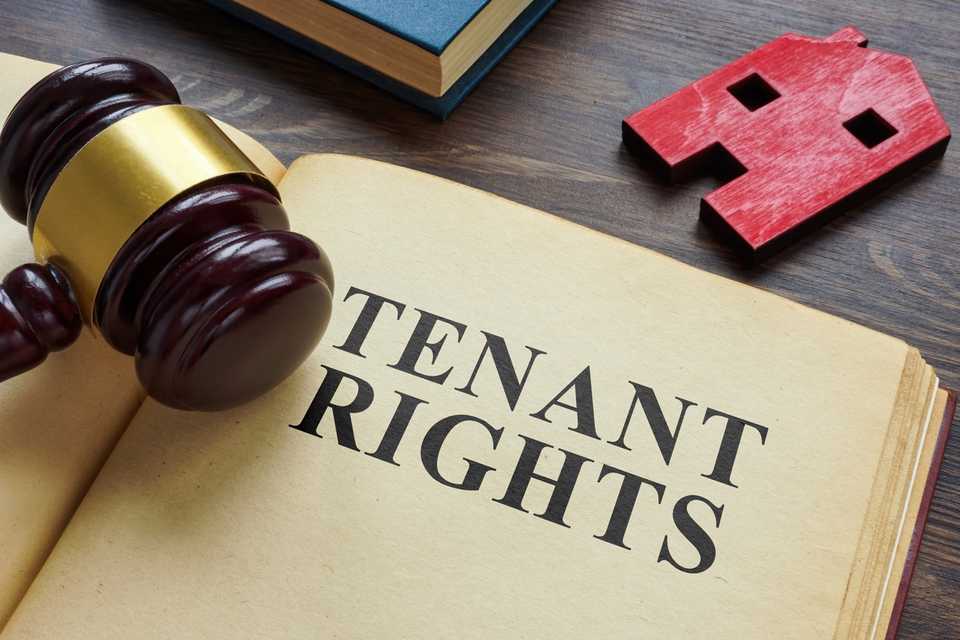
In discrimination cases, tenant lawyers are crucial for ensuring that tenants' rights are protected, and they help create a fair and equitable housing environment for all.
Advocacy for Fair Rent Practices
Tenant lawyers in Toronto play a crucial role in ensuring that tenants are not subjected to rent increases that exceed the limits set by provincial regulations. There are strict guidelines landlords must follow when raising rent, including specific annual caps on allowable rent increases.
These regulations are designed to protect tenants from unreasonable rent hikes and help ensure that rental costs remain affordable.
Reviewing Rent Increases:
Tenant lawyers assess whether the rent increase is within the guidelines set by the Ontario Ministry of Municipal Affairs and Housing. If the increase exceeds the prescribed limit, it may be deemed illegal. Lawyers will carefully examine the details of the increase, including the timing and amount, to ensure compliance with the law.
| For your information, the rent increase guideline set by the ministry for 2025 is 2.5%. This guideline applies to rent increases between January 1, 2025, and December 31, 2025. For example, if the monthly rent is $1,000 when the lease is signed on June 1, 2024, the maximum allowable rent increase for the next lease on June 1, 2025, would be $1,025. |
|---|
If the rent increase is found to be unlawful, tenant lawyers advise tenants on their options. This could include negotiating with their landlord, challenging the increase directly with the landlord, or seeking further legal action through the LTB.
- Filing a Dispute with the Landlord and Tenant Board:
If informal negotiations with the landlord do not resolve the issue, tenant lawyers can help tenants file a dispute with the LTB. The lawyer will guide the tenant through the process, helping them submit the necessary paperwork and prepare for a hearing.
Tenant lawyers ensure tenants are not overcharged by ensuring rent increases are fair and legal. They protect tenants from excessive rent hikes, providing guidance to keep rental costs reasonable and within legal limits, promoting fair practices and safeguarding against exploitation.
Assistance With Lease Agreement Issues
Lease agreements are legally binding contracts that outline the rights and responsibilities of both tenants and landlords. Any misunderstandings, unclear terms, or violations of these agreements can lead to significant conflicts, affecting the tenant's living situation and legal standing.
Tenant lawyers play a vital role in helping tenants navigate these issues, ensuring that they fully understand their lease terms and obligations.
Here are several key ways tenant lawyers assist with lease agreement issues:
- Interpreting Lease Terms: Lease agreements can be complex, with legal jargon and conditions that may be difficult for tenants to understand. Tenant lawyers help clarify the terms of the lease, explaining clauses related to rent, maintenance, and responsibilities for repairs, as well as any restrictions on subletting or making alterations to the property.
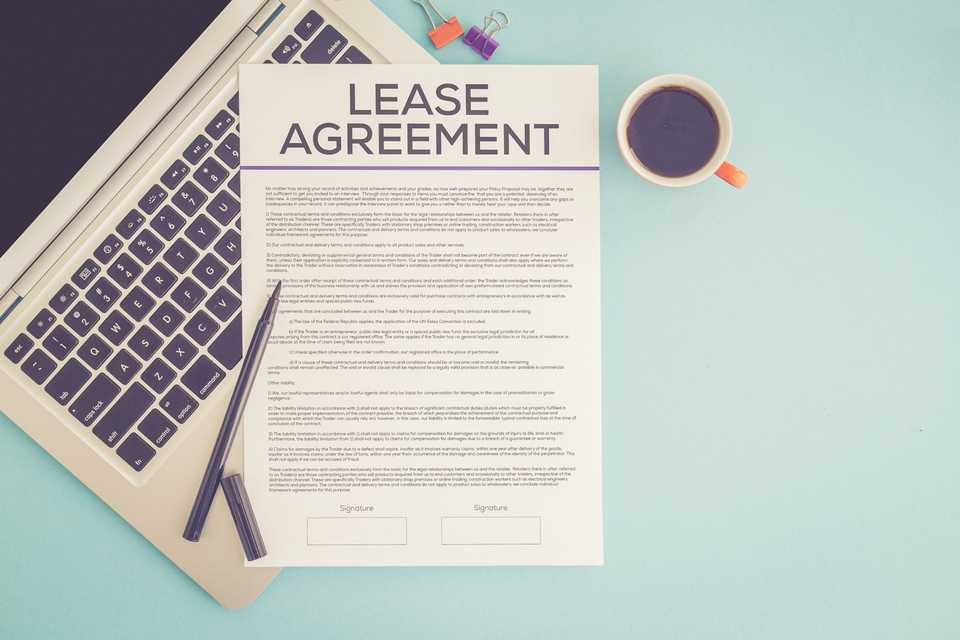
- Ensuring Compliance: Tenant lawyers advise tenants on how to comply with the lease agreement, ensuring they follow all terms and avoid violations that could lead to eviction or legal action. They also make sure that the lease complies with relevant laws, such as those related to rent control or tenant protections under the RTA.
- Dispute Resolution: Tenant lawyers are essential when disputes arise, whether over lease terms, rent payments, or the right to sublet. They provide legal solutions by negotiating with the landlord, representing tenants in hearings before the LTB, or advising on how to handle disagreements outside of court.
.
By providing these services, tenant lawyers ensure that tenants' interests are protected, helping to resolve issues effectively and avoid unnecessary conflicts.
How to Find the Best Tenant Lawyer for You in Toronto?
Choosing the right tenant lawyer is a crucial decision that can greatly affect the outcome of your case. Whether you are facing issues such as unlawful eviction, disputes over rent increases, or problems with property maintenance, the lawyer you select will be instrumental in protecting your rights.
Below is a detailed guide to help you find the best legal support for your specific needs:
Research and Recommendations
The first step in finding a qualified tenant lawyer is conducting thorough research. Start by asking for recommendations from trusted sources such as friends, family, or colleagues who have had prior experience with tenant lawyers. They can provide valuable insights into the lawyer’s effectiveness, professionalism, and approach.
In addition, consider reaching out to tenant support organizations or housing advocacy groups in Toronto. These groups often work closely with tenant lawyers and can direct you to reputable legal professionals who specialize in tenant rights.
You can also check online reviews on platforms like Google or legal directories, where former clients share their experiences with specific lawyers. Pay attention to comments on communication style, expertise, and results, as this can give you a sense of whether the lawyer will meet your needs.
Specialization and Experience
Tenant law is a specialized area of practice, so it’s essential to select a lawyer who has specific experience handling cases similar to yours.
| For example, if your case involves discrimination, but the lawyer you are considering primarily focuses on unlawful eviction cases, they may not have the specialized knowledge necessary to effectively represent you. In this situation, choosing a lawyer with expertise in discrimination or tenant rights issues would be more beneficial. |
|---|

When selecting a tenant lawyer, it's important to assess their track record and experience in dealing with cases similar to yours. Look for evidence of successful outcomes, such as favourable rulings or settlements in past tenant law cases. A lawyer's history of success in handling cases likes yours can give you confidence in their ability to advocate effectively on your behalf.
Initial Consultations
Many tenant lawyers offer free or low-cost initial consultations. Take advantage of this opportunity to meet with the lawyers you selected through your research, discuss your legal issue, and assess whether their services are a good fit for you.
During this meeting, you should feel comfortable asking questions about their experience with cases like yours, their approach to solving tenant disputes, and their understanding of the legal issues at hand.
Key questions to ask during the consultation include:
- How long have they been practising landlord-tenant law?
- What is their experience with cases like yours?
- How do they approach disputes and what strategies do they use to resolve issues?
- What are the expected timelines and possible outcomes for your case?
Use this time to gauge how well the lawyer communicates with you and whether you feel confident in their ability to represent you effectively. This is an opportunity to get a feel for their personality and whether they will be approachable and responsive throughout your case.
Cost and Payment Plans
The cost of hiring a tenant lawyer is an important factor to consider, as legal services can be expensive. It is essential to discuss fees and payment arrangements upfront to avoid any surprises later on. Ask about the lawyer’s hourly rate, flat fees, or retainer fees, depending on the nature of your case.
Some lawyers offer flexible payment plans to accommodate clients’ financial situations, while others may offer sliding scale fees, where the cost of legal services is adjusted based on your income.
If you are concerned about affordability, ask if the lawyer offers any alternative fee structures or if they work with legal aid services for tenants who may be eligible for financial assistance. Understanding the payment structure at the outset ensures that you can manage your legal costs effectively without unnecessary stress.
Finding the right tenant lawyer in Toronto involves a combination of research and thoughtful consideration of your specific legal needs. By following these steps, researching recommendations, attending initial consultations, evaluating experience, and understanding costs, you can ensure that you select a lawyer who is best suited to represent your interests.
Find the best Tenant Lawyer in Toronto with JuriGo!
If you're facing a concern or problem with your landlord, tenant lawyers in Toronto provide comprehensive services to safeguard renters' rights and ensure fair treatment in the rental market!
From addressing unlawful evictions and advocating for essential repairs to protecting tenants from harassment and discrimination, tenant lawyers are vital in ensuring a safe and just rental experience. Their deep knowledge of the Residential Tenancies Act and other relevant laws empower tenants to approach conflicts with confidence and secure fair resolutions.
Whether dealing with rent disputes, lease issues, or unlawful practices, consulting a tenant lawyer is crucial in protecting your legal rights and achieving a just outcome!
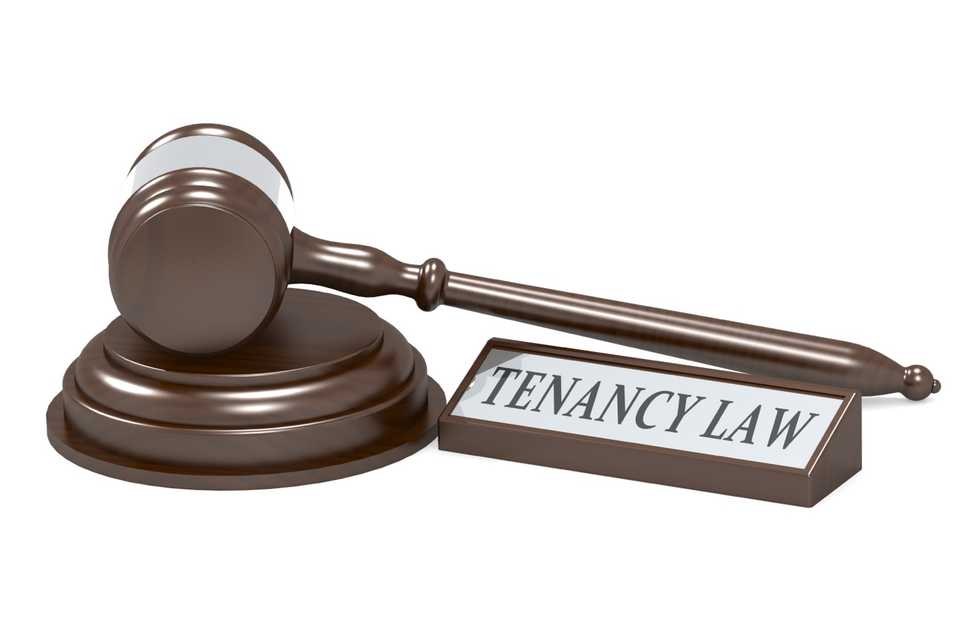
JuriGo is a simple, fast and free way to find the best tenant lawyer for you in Toronto! All you have to do is fill in our request form and tell us about your situation.
Following your request, we will quickly put you in touch with a tenant lawyer near you. There is no obligation on your part!